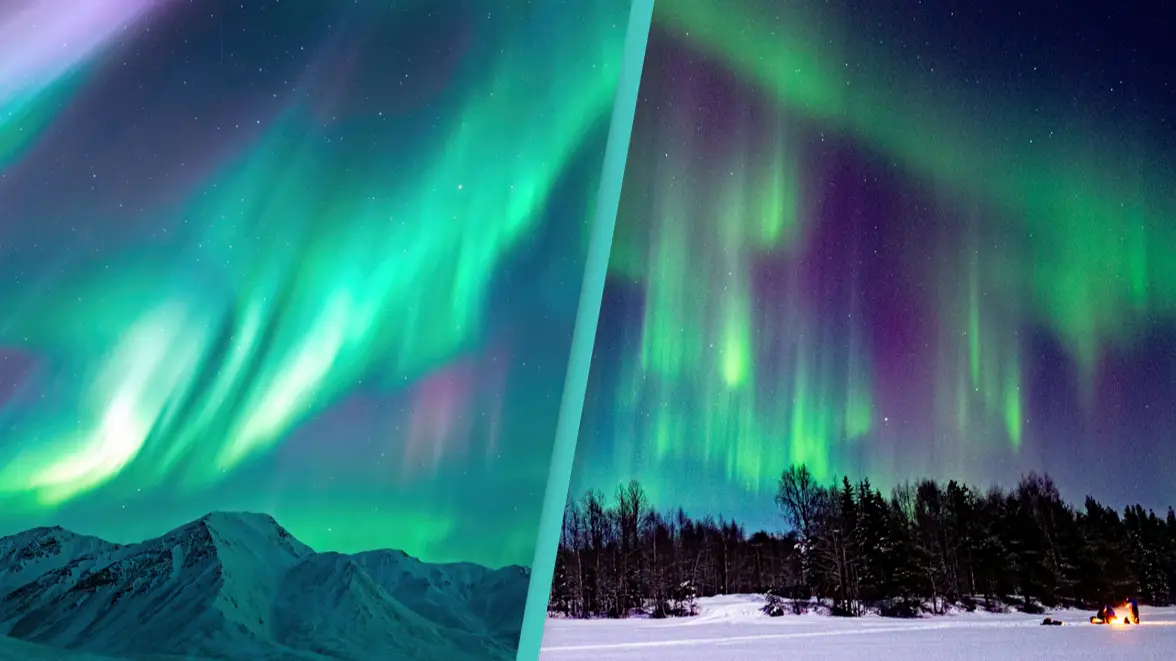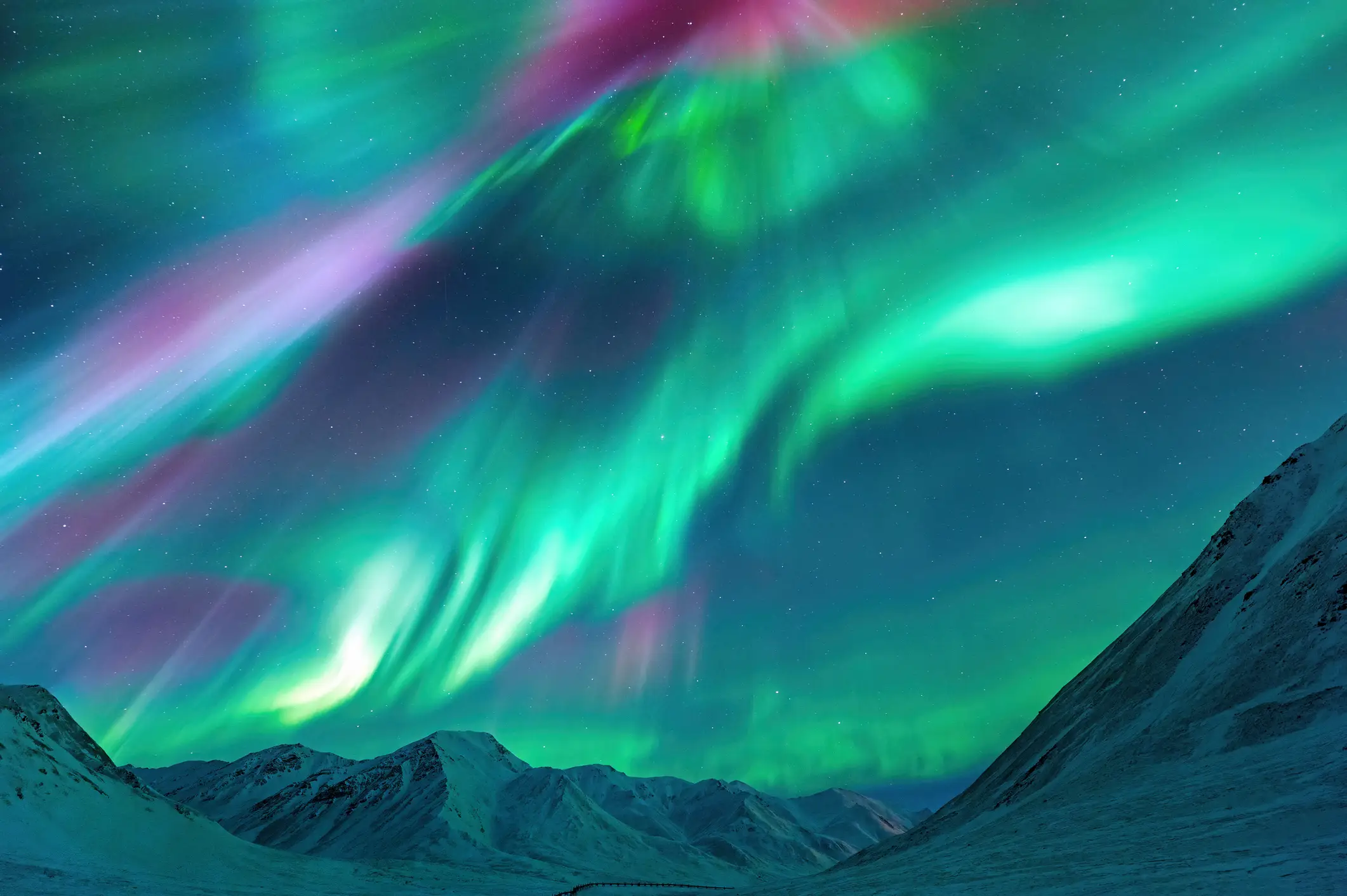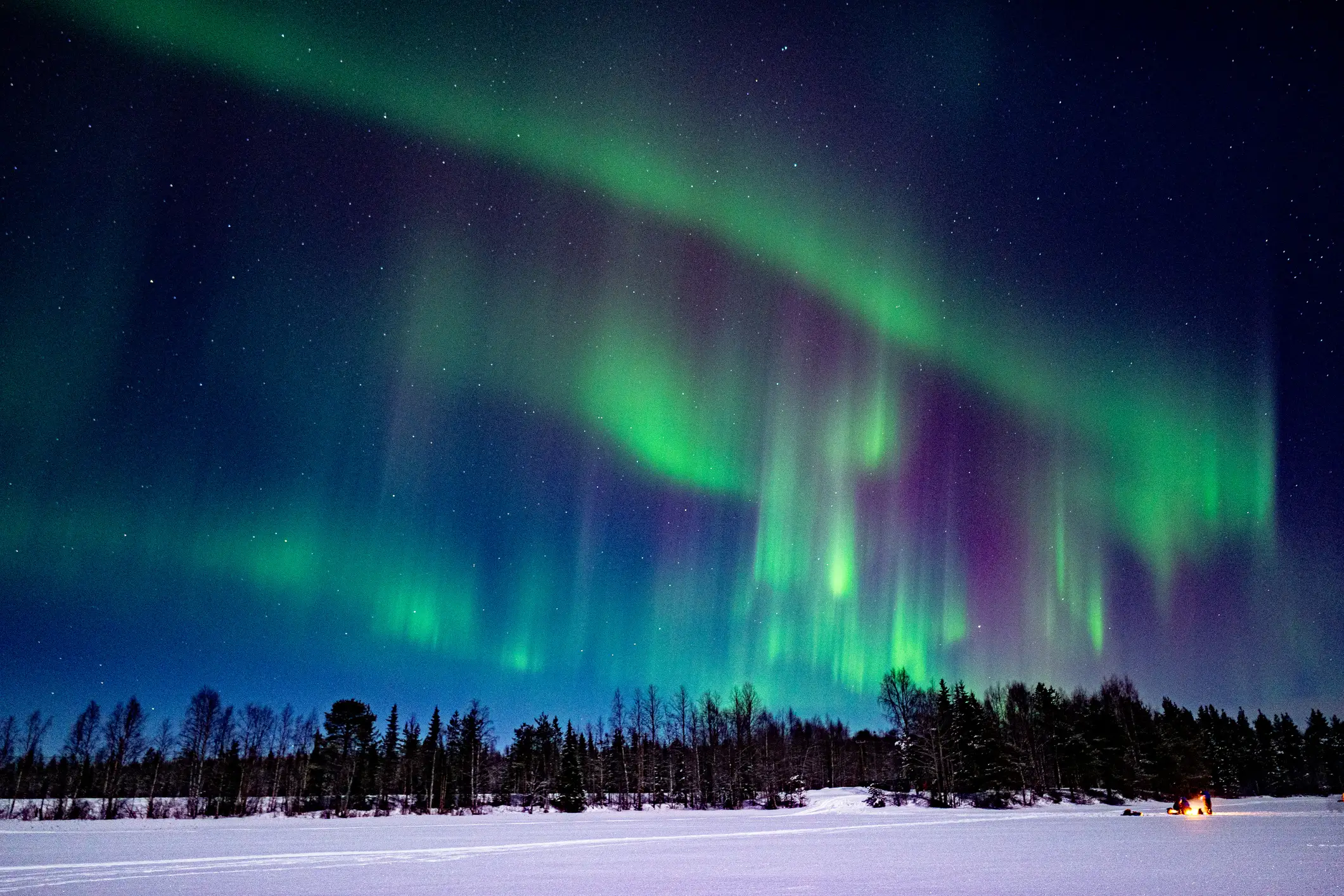
Don't worry, if you didn't catch the Northern Lights last night (May 10) then you're in luck.
Also known as aurora borealis, the phenomenon was visible throughout parts of America and is likely to continue throughout the weekend.
What's the science behind the Northern Lights?
Visibility of the Northern Lights increased on Friday due to an 'extreme' geomagnetic storm, the US National Oceanic and Atmospheric Administration (NOAA) said.
It explained how the G5 geomagnetic storm - the strongest level of geomagnetic storm - hit Earth on Thursday (May 9) and is at risk of affecting communications, GPS and power grids.
Advert

The storm took place because of a 'large' sunspot cluster, which happens to be 17 times the diameter of earth.
Different colors are on display due to the different gases in the Earth's atmosphere, which are energised by the charged particles.
Nitrogen emits purple, blue and pink colours, while oxygen emits green.
When’s the best time to see the Northern Lights tonight?
"Wait until darkness—this is very late/never for some northern locations—and find a clear/dark view north," tweeted Dr. Ryan French, a solar physicist at the National Solar Observatory (NSO) in Boulder, Colorado.
"Best conditions will likely be around local midnight, with cameras providing better sensitivity than your eyes."
He added: "So with a favourable Moon phase this weekend, get out hunting if you live in northern US or northern Europe! The lights could appear a lot further south than this, but it all depends on the magnetic configuration."
Unfortunately the window is not very long due to the shorter nights from the warmer weather.

Where is the best place to see the Northern Lights tonight?
"The aurora may become visible over much of the northern half of the country and maybe as far south as Alabama to northern California," said the NOAA.
“For most people here on planet Earth, they won’t have to do anything,” said Rob Steenburgh, a scientist with the NOAA’s Space Weather Prediction Centre.
“That’s really the gift from space weather – the aurora,” said Mr Steenburgh.
He said that the best aurora views tend to come from phone cameras, which are better at capturing light than the naked eye.
If you take a picture of the sky 'there might be actually a nice little treat there for you', said Mike Bettwy, operations chief for the prediction centre.